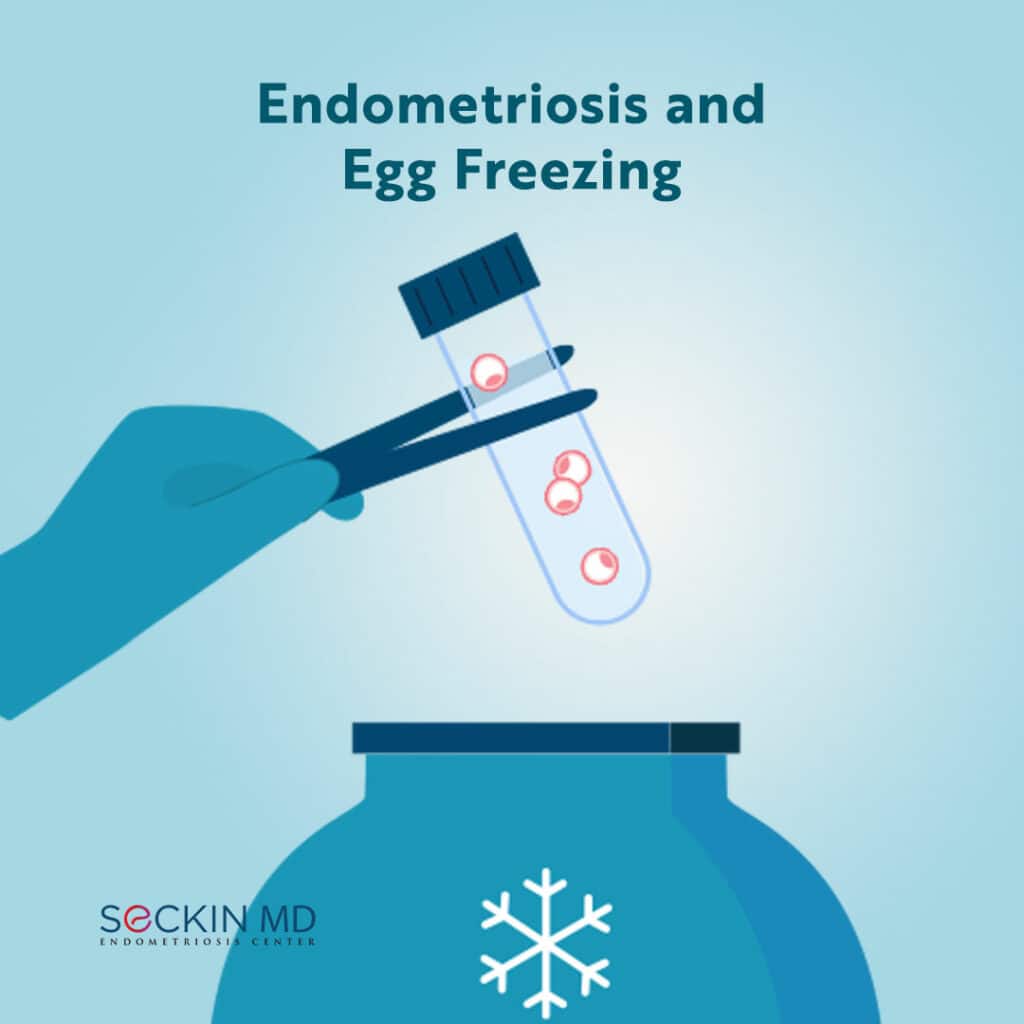Endometriosis and Egg Freezing

Endometriosis can adversely affect the quality and quantity of a woman’s eggs and lead to infertility. Egg freezing or oocyte cryopreservation might be a viable option for preserving the fertility of a woman with endometriosis.
How endometriosis affects ovarian reserves?
There are contradictory reports on how endometriosis affects egg quality. However, women with endometriosis tend to have lower antral follicle counts (AFC) and anti-Mullerian hormone (AMH) levels. Moreover, their eggs may “respond less” when undergoing in vitro fertilization (IVF) cycles.
Why egg freezing might be a good idea?
Egg freezing could be a good fertility preservation strategy for women with endometriosis who do not wish to become pregnant immediately. The best age for preservation is prior to age 35. But the exact timing will depend on a patient’s individual case.
If you have endometriosis, egg freezing can provide added peace of mind while you focus on other aspects of your life.
How are eggs harvested?
Before harvesting, the patient undergoes a baseline evaluation.
Blood tests will include measurements of hormones such as follicle-stimulating hormone (FSH) and anti-Mullerian hormone (AMH). Low FSH levels at the beginning of the cycle are an indication of proper ovarian function. However, one must undergo FSH testing during the first few days of the menstrual cycle and not when on birth control pills. AMH testing can be done at any point during the menstrual cycle. While AMH levels can vary greatly among women, the amount of AMH usually correlates with ovarian reserve.
A transvaginal ultrasound is also necessary to assess antral follicles, another marker for ovarian reserve. It may also help see whether the patient has endometriosis of the ovaries (endometriomas) as well as determine the volume of the ovaries. Smaller ovaries or those with endometriomas usually have fewer viable eggs.
Before harvesting eggs, your doctor will block the natural production of FSH and give you injections for about 9 to 12 days to recruit as many eggs as possible. Once follicles (egg) reach a certain size indicating maturity, a trigger shot will initiate final maturation. The trigger shot is usually Lupron and/or human chorionic gonadotropin. The Lupron used for the trigger is a much lower dose than used for hormonal suppression, and is one-time only.
Your doctor will harvest your eggs using a process called vitrification. This usually involves fast freezing followed by immersion in liquid nitrogen for increased survival rates. Egg retrieval normally takes anywhere between 15 to 20 minutes and is done transvaginally without any incisions or sutures.
How does egg freezing compare with ovarian tissue cryopreservation?
Both egg and ovarian tissue cryopreservation come with their own merits and demerits. Ovarian tissue cryopreservation, while not available in most settings, is an effective technique for fertility preservation, especially where the laparoscopic removal of endometriomas is necessary. Here, the surgeon isolates and preserves the healthy parts of the ovarian cortex containing the follicles. They can then transplant them back into the body at a later date. Another advantage is that there is no need for stimulation as with egg freezing and your surgeon can do this during laparoscopic surgery itself.
While ovarian tissue cryopreservation does seem to overcome some of the limitations of oocyte cryopreservation, the laparoscopic procedure is risky and there are not enough studies to test the efficiency of this procedure over conventional egg freezing, especially for endometriosis patients. Although the American Society for Reproductive Medicine only recently removed the “experimental” label over ovarian tissue cryopreservation for women or girls embarking upon gonadotoxic therapies, such as for cancer treatment, studies on ovarian tissue cryopreservation may become more prevalent for endometriosis patients as well where egg freezing is not an option.
Have you considered egg freezing? Please share your thoughts and concerns by leaving a comment on our post on Facebook or Instagram if you wish.
Get a Second Opinion
Our endometriosis specialists are dedicated to providing patients with expert care. Whether you have been diagnosed or are looking to find a doctor, they are ready to help.Our office is located on 872 Fifth Avenue New York, NY 10065.
You may call us at (646) 960-3080 or have your case reviewed by clicking here.